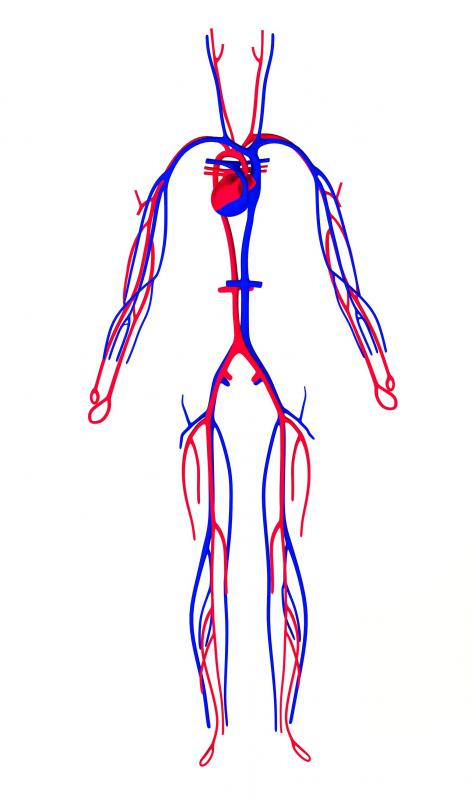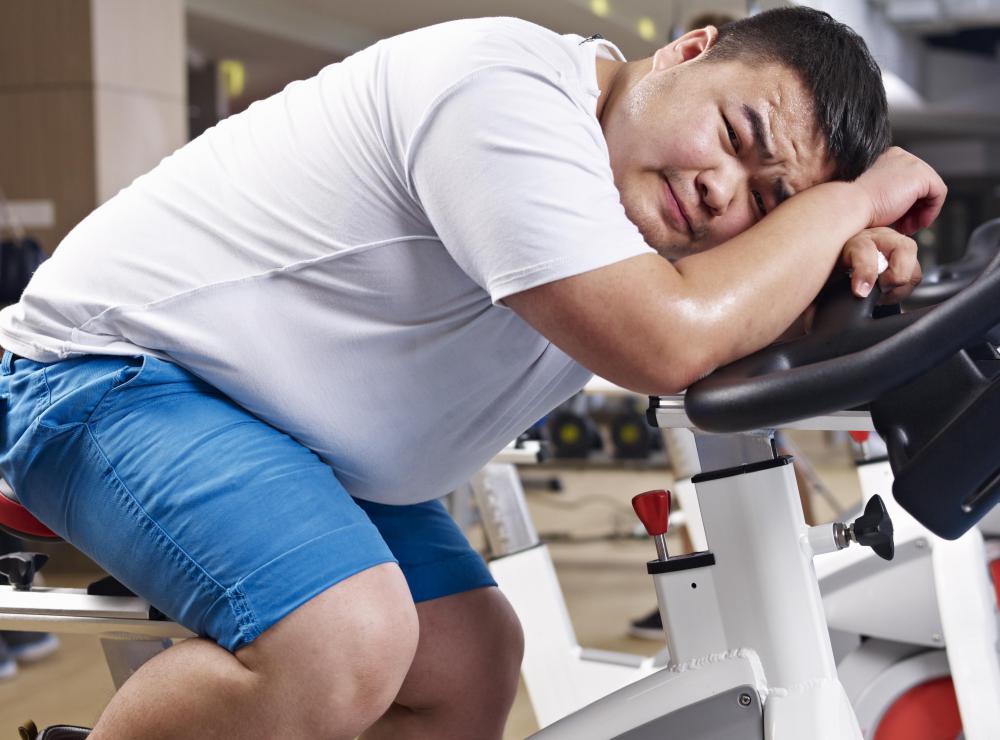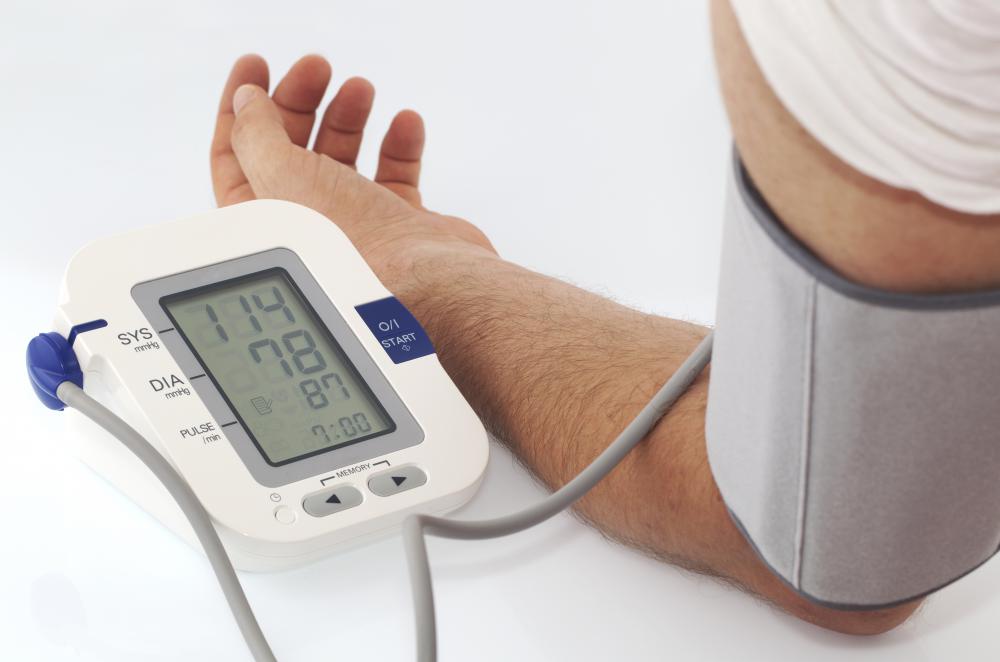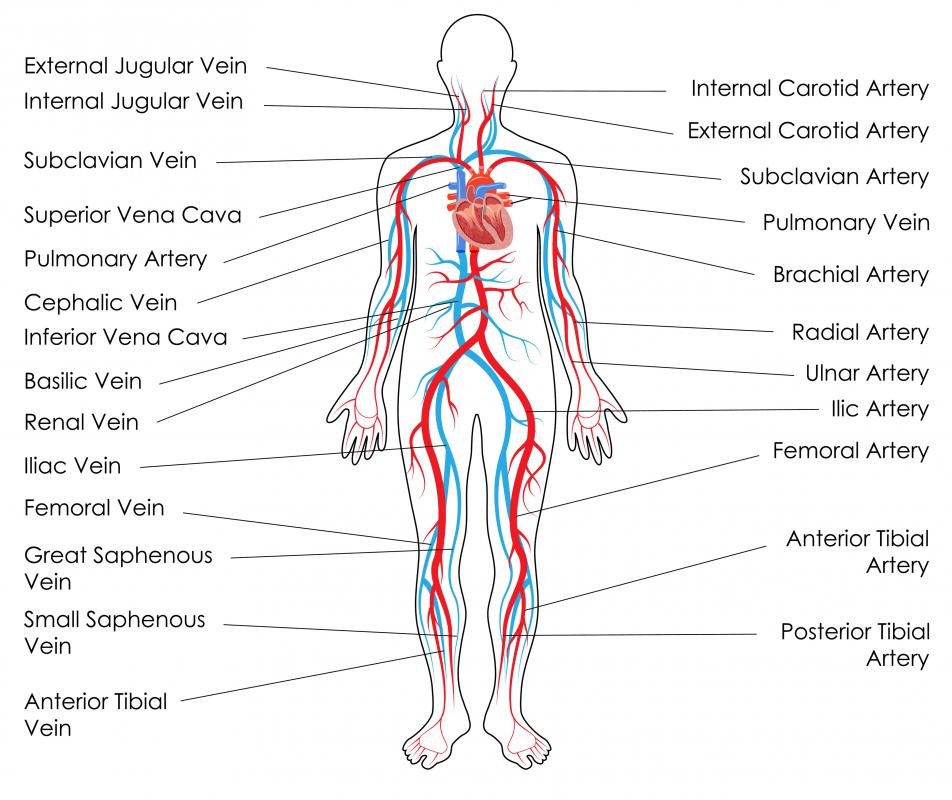At WiseGEEK, we're committed to delivering accurate, trustworthy information. Our expert-authored content is rigorously fact-checked and sourced from credible authorities. Discover how we uphold the highest standards in providing you with reliable knowledge.
What is Vascular Resistance?
Vascular resistance describes the degree to which the blood vessels of the cardiovascular system — the arteries, capillaries and veins — affect the flow of blood to the various organs of the body. The main characteristics that determine the amount of resistance are the diameter and length of the vessels and the viscosity, or thickness, of the blood. Of these three factors, vessel diameter is the most significant.
Vasoconstriction, which is the constriction or narrowing of the diameter of the blood vessels, increases vascular resistance in much the same way that hose and faucet nozzles restrict and consequently increase the pressure of water flowing through a pipe or hose. The two types of vascular resistance are systemic vascular resistance and pulmonary vascular resistance.

The regulation of pulmonary vascular resistance refers to blood flow within the lungs. The tension within the vessels that feed all of the body’s organs except the lungs is called systemic resistance. Systemic resistance is sometimes referred to as peripheral vascular resistance.
Often referred to as the “silent killer,” hypertension, or high blood pressure, affects millions of people all over the world. Many are not even aware of the condition until it has advanced to a serious state. High blood pressure is a caused by an increase in systemic vascular resistance or an increase in cardiac output, which is measured by heart rate and blood volume. The volume of blood that is pumped and the degree to which the blood vessels are restricted determine the increase in blood pressure.

Uncontrolled, high blood pressure can lead to many serious conditions, such as heart attack, stroke, aneurysm, congestive heart failure and kidney dysfunction. It also can lead to myocardial infarction, vision loss, memory impairment and even death. Most of the time, high blood pressure can be successfully treated with a combination of medicines and lifestyle changes.

Health professionals employ a wide range of drugs to counter the effects of increased vascular resistance that leads to high blood pressure. Some of these include alpha blockers, angiotension-converting enzyme inhibitors, beta blockers, diuretics, rennin inhibitors and vasodilators.
When coupled with certain changes, these medications can often bring blood pressure back within the acceptable range. These changes include adopting a diet that includes less fat, less sodium and more fiber; developing a consistent exercise routine; stopping smoking; losing weight; and reducing stress. It is believed that the effects of hypertension could be significantly reduced, if not eliminated, by adopting these lifestyle practices early in life.
AS FEATURED ON:
AS FEATURED ON:


















Discuss this Article
Post your comments